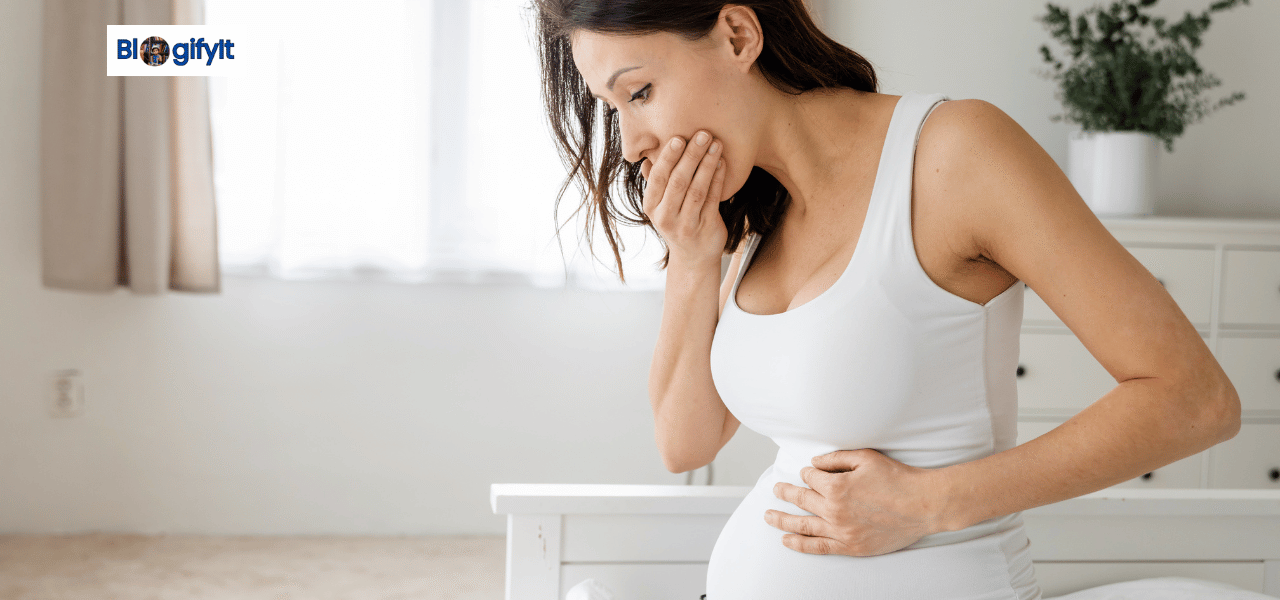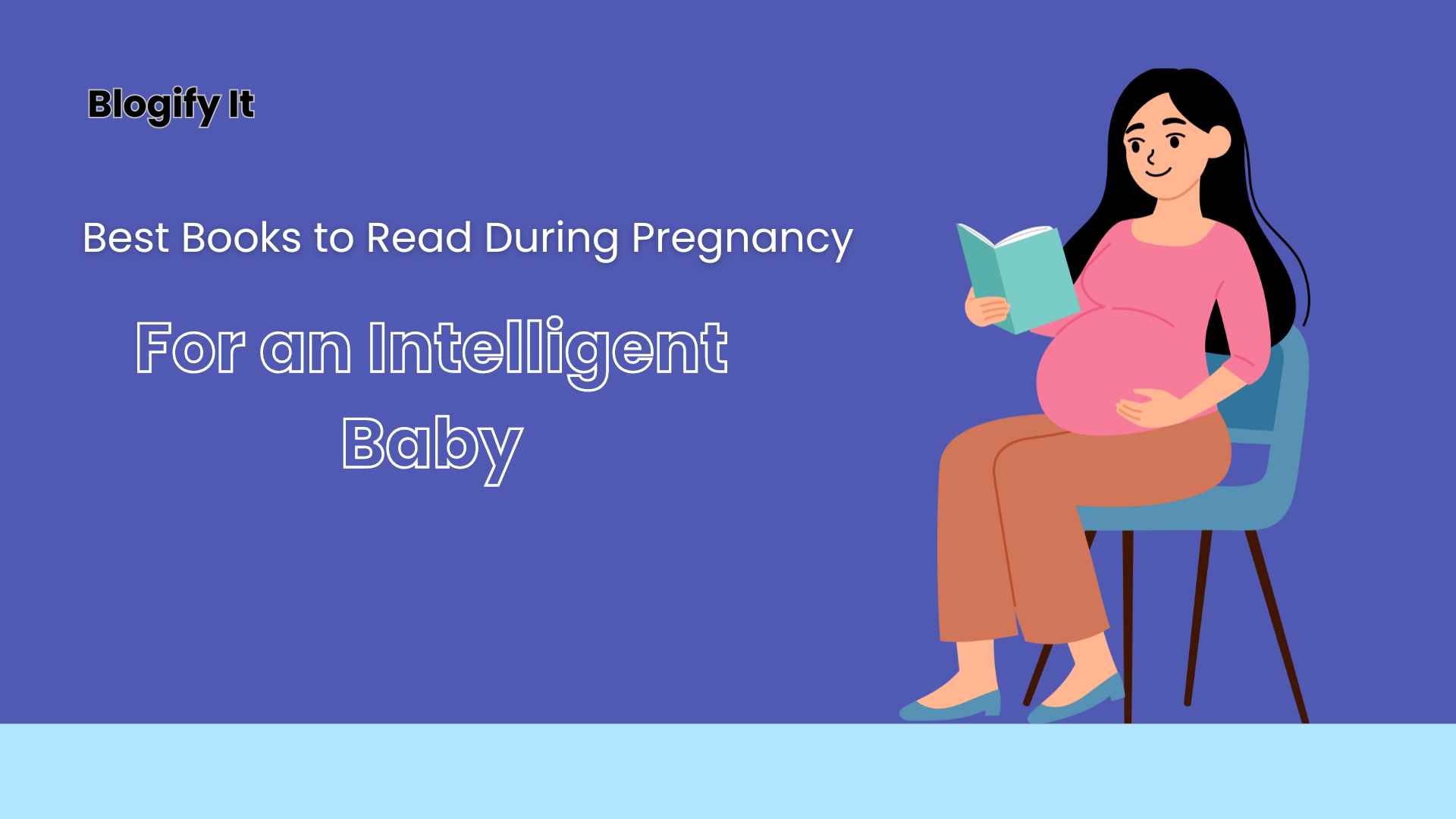Pregnancy is one of the most incredible transformations the human body can experience. But let’s be honest—it’s also intense, emotional, and sometimes downright confusing. If you’re pregnant or planning to be, you might find yourself wondering:
- “What happens to a woman’s body while pregnant?”
- “What’s really going on inside my body during each stage?”
You’re not alone! I felt it too. When I was pregnant, I remember staring at my body in the mirror, wondering how something so natural could feel so foreign. Initially, I used to vomit a lot. Everything I ate seemed to come right back up, and I couldn’t even stand the smell of my favorite foods.
I felt exhausted just getting out of bed, and the constant nausea made it hard to feel excited. There were days I questioned if this was normal—if I was doing something wrong. But over time, I realized that my body wasn’t broken—it was working overtime to grow a new life. And slowly, I began to trust the process, listen to my body, and give myself the grace I truly needed.
Today in this blog, I want to walk you through exactly what happens to a woman’s body during pregnancy—week by week, stage by stage—so you can better understand the changes, both big and small, that are happening inside you.
We’ll talk about those early weeks when symptoms sneak in before you even realize you’re pregnant, the whirlwind of the first trimester, and what your body feels like as your baby bump begins to grow.
What Happens to a Woman’s Body During the First Trimester of Pregnancy?
The first trimester (weeks 1 to 12) is often the hardest. It is a time of enormous transition that can be difficult on both a physical and emotional level.
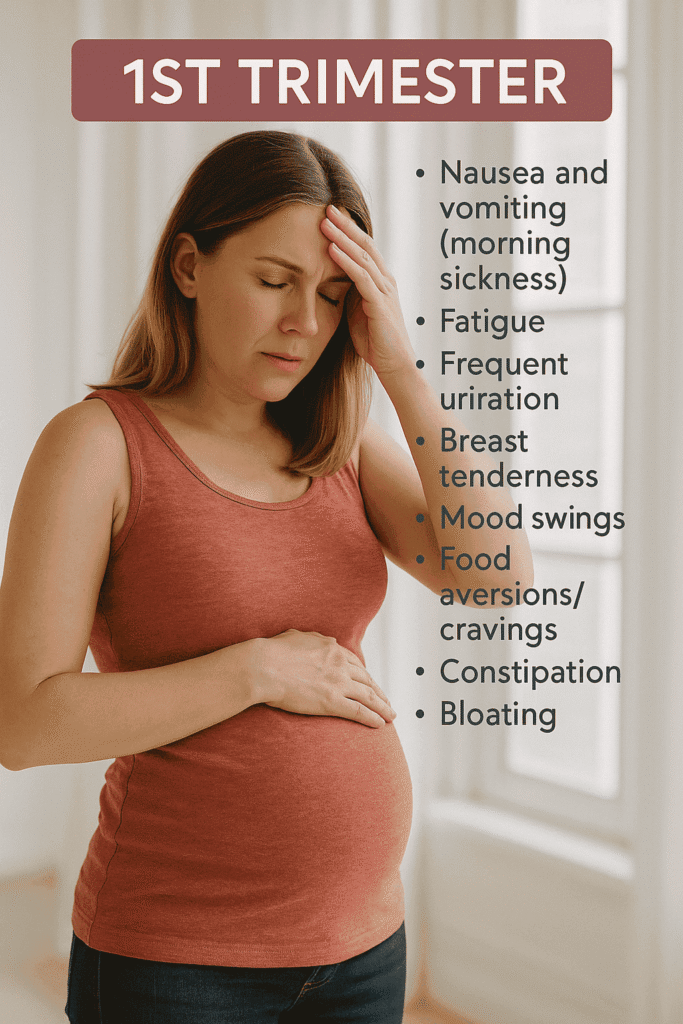
1. Implantation Has Occurred
At around this time, the fertilized egg is in the process of moving through the fallopian tube and implanting itself in the uterine lining. This is the official initiation of pregnancy. You could notice light spotting or cramping, sometimes confused for a light period.
2. Hormones Start to Surge
The moment implantation occurs, your body starts producing hCG (human chorionic gonadotropin)—the hormone that causes a pregnancy test to be positive. At the same time, your estrogen and progesterone levels begin to rapidly rise. These hormones help sustain pregnancy and prevent your period from coming.
3. Your Body Begins to Change Internally
Even though there’s no visible bump yet, your uterus has already started expanding to make space for the developing embryo. It’s nearly doubled in size by the end of the first trimester. You might feel bloated, heavy, or full in your lower belly.
4. Your Baby’s Heart is Beginning to Form
This is an important week. The embryo is beginning to form a neural tube (which ultimately becomes the brain and spinal cord), and the heart begins to form inside your uterus. In some cases, a small flicker of a heartbeat can be detected through a vaginal ultrasound.
5. You May Start to Notice Symptoms
- Nausea or queasiness — especially in the morning. Well, a lot of people think that morning sickness is a sign of having a baby girl. It’s one of the most common old wives’ tales out there. In fact, I heard it so many times—“Oh, you’re so sick? Must be a girl!” And it was true in my case but there’s no scientific proof that intense nausea means you’re having a daughter.
- Heightened sense of smell, causing food aversions
- Mood swings or waves of emotion – brought on by hormones
- Fatigue, as you body works overtime, below the surface
- Breast changes: they might feel fuller, more sensitive or heavier.
- Frequent urination: a growing uterus puts pressure on the bladder. Though I didn’t face this issue much, all my friends did—and they used to joke about practically living in the bathroom during their first trimester!
Keep in mind, your baby is still smaller than a sesame seed, but the developments occurring inside of you are enormous. You may be feeling overwhelmed or shocked at how tired you are – please know that it is okay to rest. After all, you are building life.
6. Other Possible First Trimester Changes
- Increased vaginal discharge (thin, white, and mild-smelling)
- Constipation and bloating, due to rising progesterone levels
- Mild headaches or dizziness caused by hormonal changes and lower blood pressure
- Skin changes, such as acne due to hormonal surges
What Happens to a Woman’s Body During the First Trimester of Pregnancy?
A lot of women say that the second trimester is the best part of being pregnant, and I completely get that. Aside from the more noticeable attributes, like your nausea might go away, your energy might start returning (hopefully!), and you will likely start enjoying yourself. This is also the time when you may start to show, and you will begin to bond with your new human as it develops.
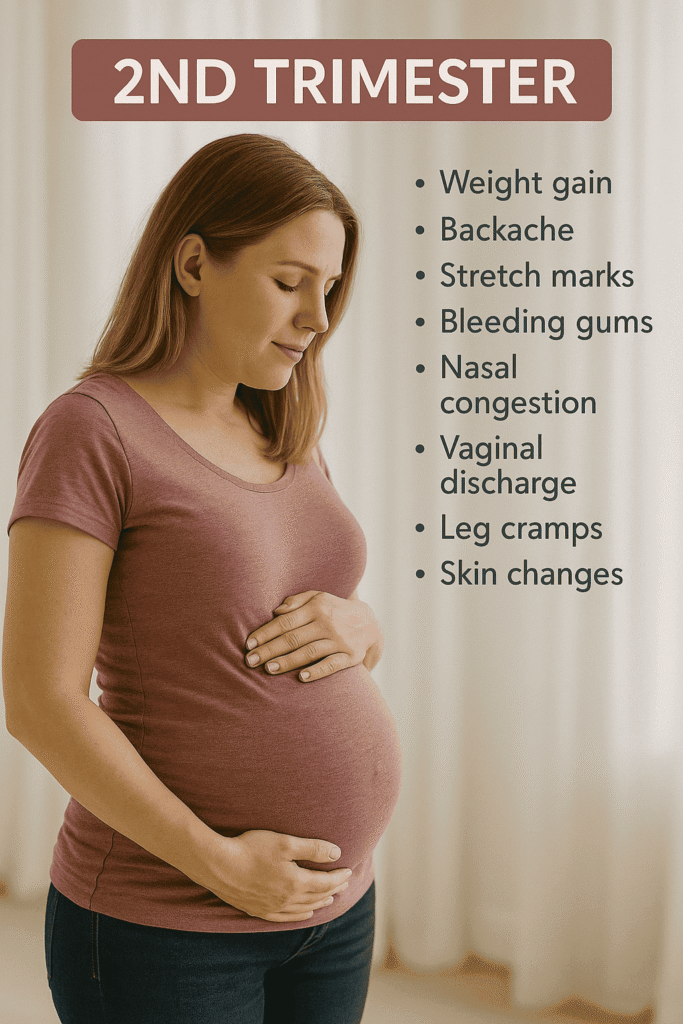
1. You May Start to Get Your Energy Back
One of the first signs that you are in your second trimester is that you might start to notice a change in how you feel. The all-day nausea may start to reduce around week 14 or 15, and the sense of being tired all of the time can ease. I remember waking up one morning and feeling like I could finally eat breakfast without gagging… oh what a relief!
2. Your Belly is Getting Bigger
By week 16 to 20, your uterus expands enough to push above the pelvic bone. This is when you will see your bump more apparent, and your waistline may start to feel snug in your pants and clothing. You will soon have to start wearing maternity clothing, but this can be a practical and comfy option!
3. You May Experience Your Baby’s Movements
This is an absolutely enchanting milestone. Between weeks 18-22 you might notice a flutter, tickle, or tiny bubbles, the first movements of your baby, also called “quickening.” In a first pregnancy, it usually happens closer to 20 weeks, while in subsequent pregnancies it is usually earlier. I remember those tiny kicks and getting misty-eyed. It made everything seem real.
4. Your Body is Making Space
Your body continue to change:
- By week 20, your uterus is now the size of a papaya.
- Your abdominal muscles and ligaments will stretch, which can mean aches and pulling sensations occasionally especially on the sides of your belly and belly button.
- Back pain and leg cramps may be starting, especially if you are standing for long periods.
- You might see your belly button visibly pop out.
5. Your Baby is Developing Rapidly
- The organs of the baby are maturing, especially the lungs and digestive system.
- The facial features are becoming sharper, and actual tiny eyebrows and eyelashes are noticeable.
- We can typically see the sex of the baby during an anatomy scan around week 18-20.
- Hearing is also developing, and the baby may start to respond to sound. (I used to talk or sing to my belly, hoping my tone was soothing.)
6. Breast Changes Will Continue
Your breasts are starting to prepare to make your milk. So, keep an eye out for:
- Darker areolas
- Veins of increased blood flow
- A yellowish fluid called colostrum (early breast milk) leaking may even start around weeks 20–24.
7. Skin, Hair, and Hormonal Changes
Hormonal changes will impact everything:
- Now you will start to notice “pregnancy glow” as blood flow continues to increase and oil production increases.
- Some women will experience linea nigra, a dark vertical line down their belly.
- You may experience stretch marks on your belly, thighs, or breasts.
- You will likely notice your hair growing in thicker and shinier (I loved this part!).
However, other women will battle skin darkening or breakouts, which is also completely normal.
8. Other Common Symptoms
- Heartburn or indigestion will develop as your increasing uterus pushes on your stomach.
- Constipation might introduce itself – progesterone will slow digestion.
- Nasal congestion or even minor nosebleeds may develop as blood vessels are swollen.
- Dizziness or low blood pressure when standing up too quickly.
- Increased appetite – your body will require more fuel to sustain the fetus’ growth.
9. Emotional Changes
Although the second trimester is certainly easier, it is still emotional:
- Anxiety or worry may set in, especially before scans or appointments.
- Excitement builds as your belly will grow and people will start to notice.
- You may start seeing dreams of your baby, your birth plan.
Tip: This is a good time to start prenatal yoga or gentle exercise (with your doctor’s approval), begin a pregnancy journal, and attend mid-pregnancy checkups, including the 20-week anatomy scan.
By the end of the second trimester, your baby is about the size of a cauliflower and weighs over 2 pounds. You might be feeling more connected, more curious, and yes, more tired again as your bump gets bigger.
But you’re doing great. Your body is incredible, and this middle phase is one to cherish.
What Happens to a Woman’s Body During the Third Trimester of Pregnancy?
Congratulations, you’ve made it to the final leg of this journey—the third trimester (weeks 28 to 40). The reality of everything is hitting you. Your belly is expanding quickly, your baby is packing on the pounds, and your body is quietly and powerfully getting ready for labor and delivery.
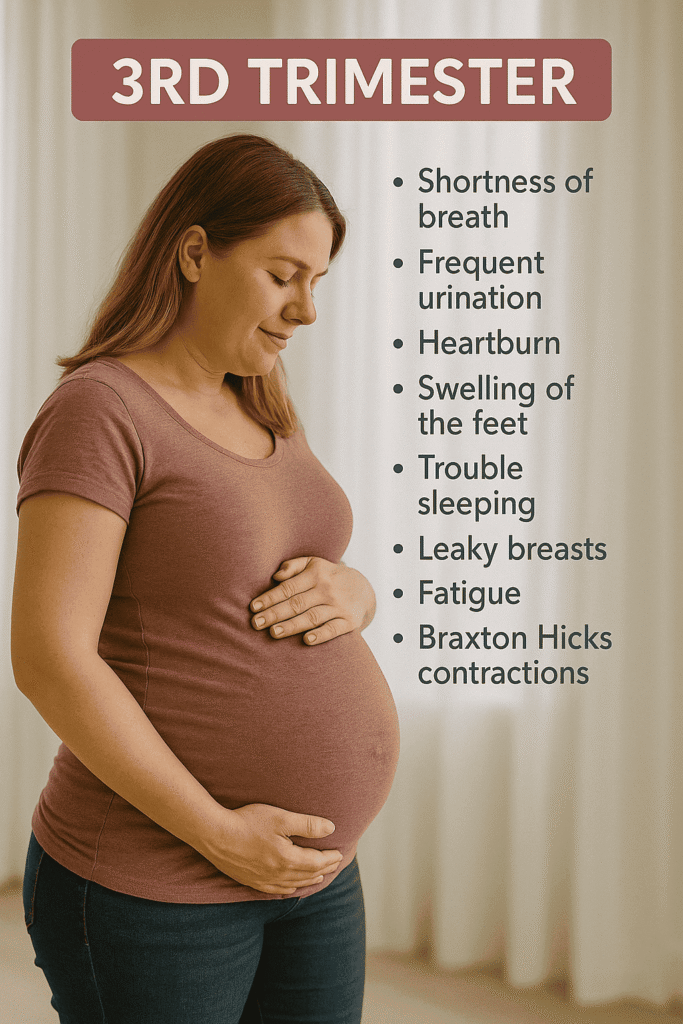
1. Your Belly is Growing—And So Are A Lot of Other Things
At this point, your uterus is about the size of a watermelon and literally resting under your rib cage! It’s not just your belly that is getting bigger— your lungs feel smashed, your stomach is pushed up, and sleeping is even becoming difficult thanks to the sheer size of your bump!
I remember trying to roll over in bed; it felt like I was doing a mini workout just to get comfortable at night sometimes. I’m pretty sure in the last month of pregnancy, I was waking up a couple of times most nights at 3 AM just laying there feeling my baby dance while I tried to get comfortable in a position that didn’t feel bursting. If this is resonating with you, you are definitely not alone, and yes, it’s totally okay to take a nap in the afternoon or disregard chores if you’re in short supply of energy!
2. Baby is Growing—and So Are Your Symptoms
As the baby starts preparing for life outside the uterus, your body is also forced to adapt:
- You may feel more back pain and pelvic pressure based on baby position and weight.
- Your body may initiate Braxton Hicks contractions (or “practice contractions”), which is not being freaked out by contractions that are prepping your body for the real thing on the big day.
- Swelling in the feet, ankles, and hands are normal, especially after standing or walking.
- Feeling out of breath happens because your baby is up against your diaphragm.
- And oh yes, those frequent bathroom trips come back (again!) as the baby settles lower down into your pelvis.
To help with swelling, elevate your feet as much as you can, drink plenty of water, and seek help when you need it! This is the most strenuous time for you — do not feel you have to do it all.
3. Emotional Waves Coming Back
As you approach labor, many of those emotions may come back — sometimes unexpectedly. You may have:
- Excitement about finally meeting your baby
- Fear about labor and delivery
- Nesting instincts, where all of a sudden, the urge comes over you to clean and organize everything
- Or combination of all three—including all within a five-minute window.
This is completely normal. I recall sobbing while folding baby clothes, not because I was sad, but more because I felt an astounding feeling that this is really happening.
Also Read: Top Exercises for Normal Delivery You Surely Don’t Want to Miss
4. Your Body is Getting Ready For Birth
Here is what is happening inside, behind the scenes:
- Your cervix will start to soften and thin (this process is called effacement).
- Your body will begin producing more oxytocin, which is the hormone that helps with bonding and contracting of labor.
- Your joints and ligaments will loosen even further to allow your baby to pass through the birth canal.
Even if you do not feel these things yet, your body is preparing for the most powerful experience of all; bringing your baby into the world.
Final Thoughts: The Journey is Yours, and You Are Enough
So, what happens to a woman’s body during pregnancy? Everything. Your body expands, stretches, and shifts, but it also strengthens, nurtures, and creates. Pregnancy is not just a physical transformation—it’s an emotional and spiritual journey too.
Every symptom you feel is part of that story. And even on the hardest days, you are doing something extraordinary.

